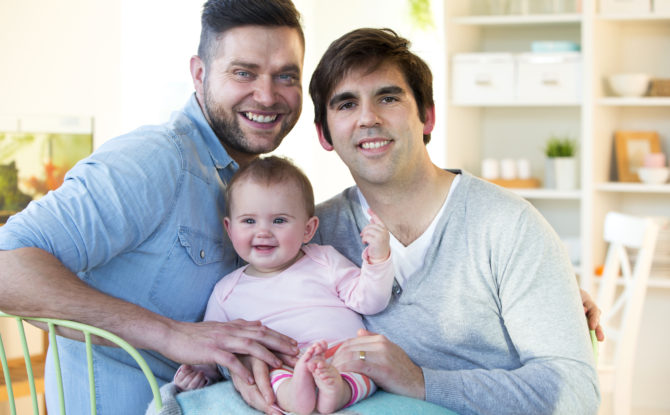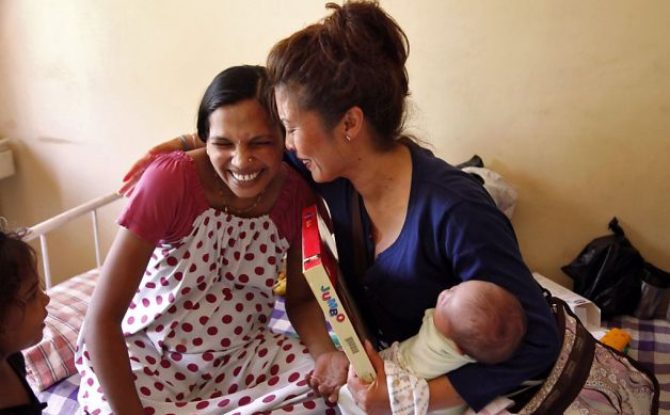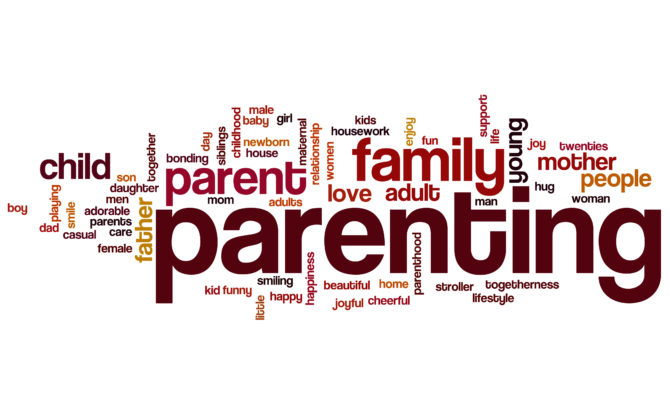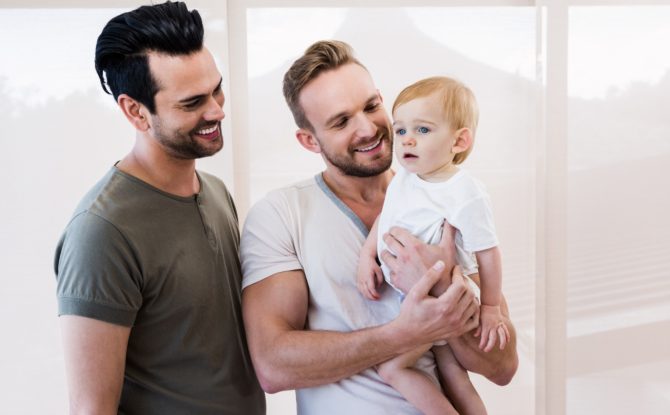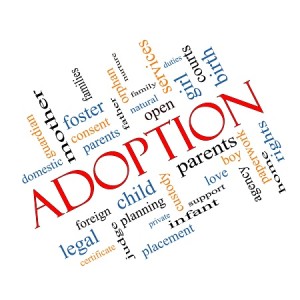Prior to the tragic events of Sunday, June 13, 2016 in Orlando, Florida, one might have felt optimistic about the evolving societal acceptance of and respect for same-sex parents and the corresponding progressive state of family and matrimonial law.
We shared in the sense of uplift from the recent United States Supreme Court decisions in United States v. Windsor and, especially, in Obergefell. v. Hodges, decided a little over one year ago on June 26, 2015. Obergefell dealt in sweeping fashion with discriminatory and unconstitutional objections to marriage for same-sex couples. As set forth in Justice Anthony Kennedy’s dramatic and moving language, the need for same-sex parents, and the children of those relationships, to be granted the social dignity and the many societal benefits that go along with stepping into the light of mainstream acceptance by virtue of a nationwide right to marry is required by the equal protection mandates of the 14th Amendment of the U.S. Constitution.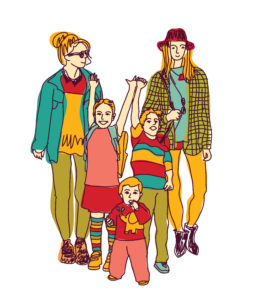
In concluding that its “analysis compels the conclusion that same-sex couples may exercise the right to marry,” 576 U.S. 12 (2015), the Supreme Court in Obergefell detailed not just the importance of being able to enter the institution of marriage, but the need for same-sex couples to do so on fully equal footing as other couples, through the front door, and stressed in its exhaustive analysis that the focus should not be on how these couples love, but that they love and wish for that love to be reflected in their social standing.
Choices about marriage shape an individual’s destiny. As the Supreme Judicial Court of Massachusetts has explained, because “it fulfils yearnings for security, safe haven, and connection that express our common humanity, civil marriage is an esteemed institution, and the decision whether and whom to marry is among life’s momentous acts of self-definition. Goodridge, 440 Mass., at 322, 798 N.E. 2d at 955″ cited at 576 U.S. 13 (2015).
As this court held in Lawrence, same sex couples have the same right as opposite-sex couples to enjoy intimate association. Lawrence invalidated laws that made same-sex intimacy a criminal act. And it acknowledged that “[w]hen sexuality finds overt expression in intimate conduct with another person, the conduct can be but one element in a personal bond that is more enduring. 539 U.S. at 567. But while Lawrence confirmed a dimension of freedom that allows individuals to engage in intimate association without criminal liability, it does not follow that freedom stops there. Outlaw to outcast may be a step forward, but it does not achieve the full promise of liberty.
576 U.S. at 14.
Further, Justice Kennedy singled out the importance of the right to marry to the children of these relationships.
Excluding same sex couples from marriage thus conflicts with a central premise of the right to marry. Without the recognition, stability, and predictability marriage offers, their children suffer the stigma of knowing their families to be somehow lesser. They also suffer the significant costs of being raised by unmarried parents, relegated through no fault of their own to a more difficult and uncertain family life. The marriage laws at issue here thus harm and humiliate the children of same-sex couples.
576 at U.S. 15.
In New York, the passage of the Marriage Equality Act in 2011 directed that all of the laws, benefits and obligations bestowed by the Domestic Relations Law with regard to marriage be read and implemented without regard to sexual orientation, and, if necessary to do that, in a gender neutral way.
Section 10-a. Parties to a marriage.
1. A marriage that is otherwise valid shall be valid regardless of whether the parties to the marriage are of the same or different sex.
2. No government treatment or legal status, effect, right, benefit, privilege, protection or responsibility relating to marriage, whether deriving from statute, administrative or court rule, public policy, common law or any other source of law, shall differ based on the parties to the marriage being or having been of the same sex rather than a different sex. When necessary to implement the rights and responsibilities of spouses under the law, all gender specific language or terms shall be construed in a gender-neutral manner in all such sources of law.
Yet, despite the passage of the Marriage Equality Act and the newfound nationwide ability to marry, the courts in New York are contending with circumstances in which same-sex families were formed and children brought into them by using strategies that pre-date the ability of same-sex couples to marry. This approach has potentially devastating consequences when those families and their respective rights are addressed in divorce and family court proceedings. These problems arise from, and the courts continue to wrestle with the vestiges of, a rule established by the New York Court of Appeals a generation ago in Alison D. v. Virginia M., 77 N.Y.2d 651 (1991), which set the stage for categorical discrimination against same-sex parents based upon their lack of a biological or adoptive relationship to a child.
The impact of Alison D. was eroded somewhat by the Court of Appeals decision in Debra H. v. Janice R., 14 N.Y.3d 576 (2010), which, through application of comity, recognized parental standing of a non-biological non-adoptive parent in 2010 based upon Vermont’s judicially created rules granting standing based upon the couple’s civil union in Vermont. However, without the right to marry or enter into a civil union in New York at the time, children of unmarried same-sex couples in New York were not afforded the same benefits and protections.
This discrimination is not so easily remedied by the directives of the Marriage Equality Act because many of the parents involved in these situation were not or are not married at the time that their children are born and because the conceptual framework for the denial of standing is based upon a biologically based terminology that is found throughout the family and matrimonial law. This terminology reflects a fixation with the biomechanics of conception, a fixation which runs deeper than mere gender assumptions. Instead of a focus on the “best interest” of children, which is the bedrock determination of all other matters related to their custody and welfare in New York matrimonial and family law, the New York Supreme, Family and Surrogate’s Courts continue to trip over the threshold issues of “standing” when it comes to same-sex parents because of references to “birth” parents or the heterosexual and gender assumptions implied by the use of the word “paternity.” For example, a “paternity” test directed in Family Court proceeding continues to only apply to men and only to establish the biological relationship of men to children obviously born to women. Perforce, this excludes same-sex couples.
By Meg Canby and Caroline Krauss Browne
law.com
Click here to read the entire article.

